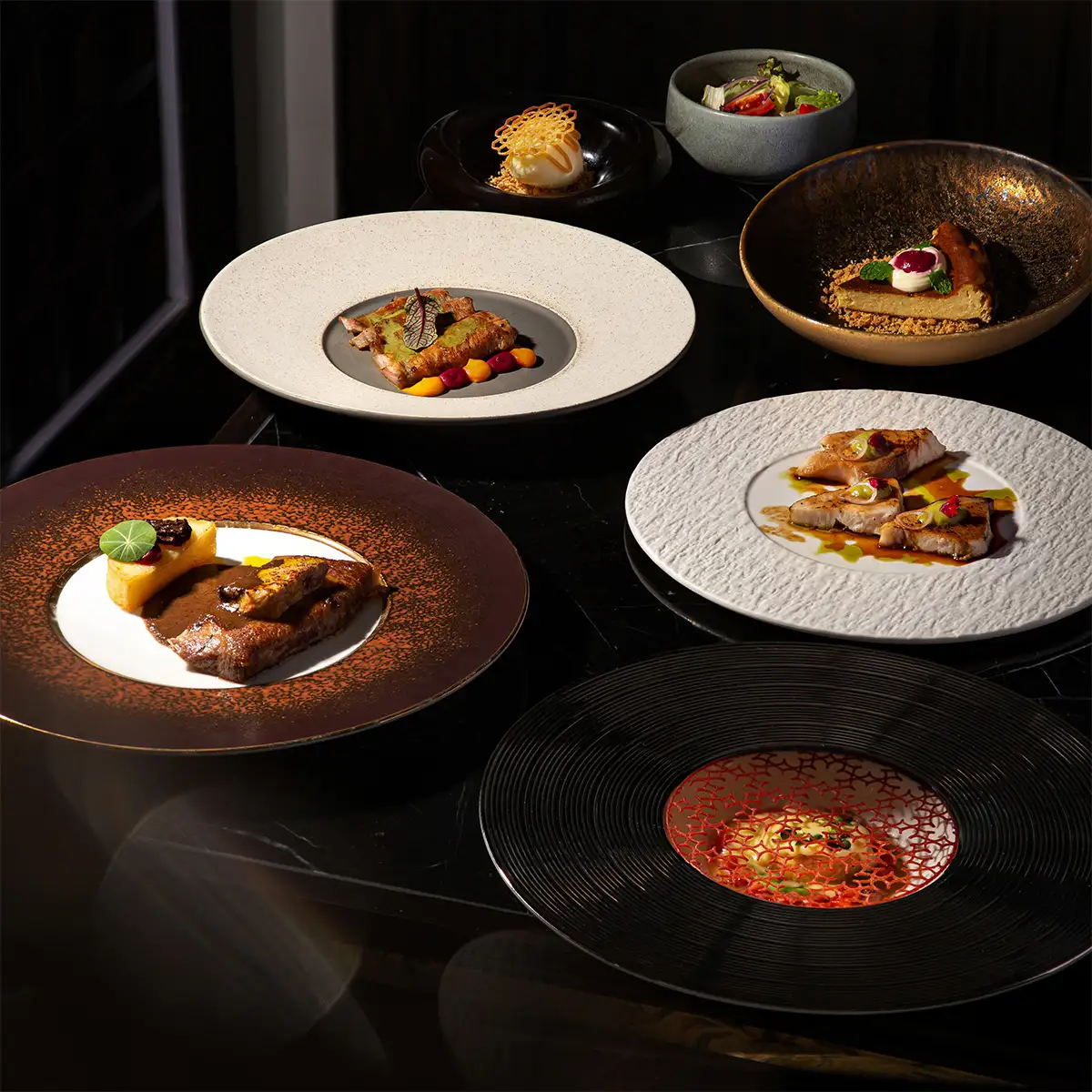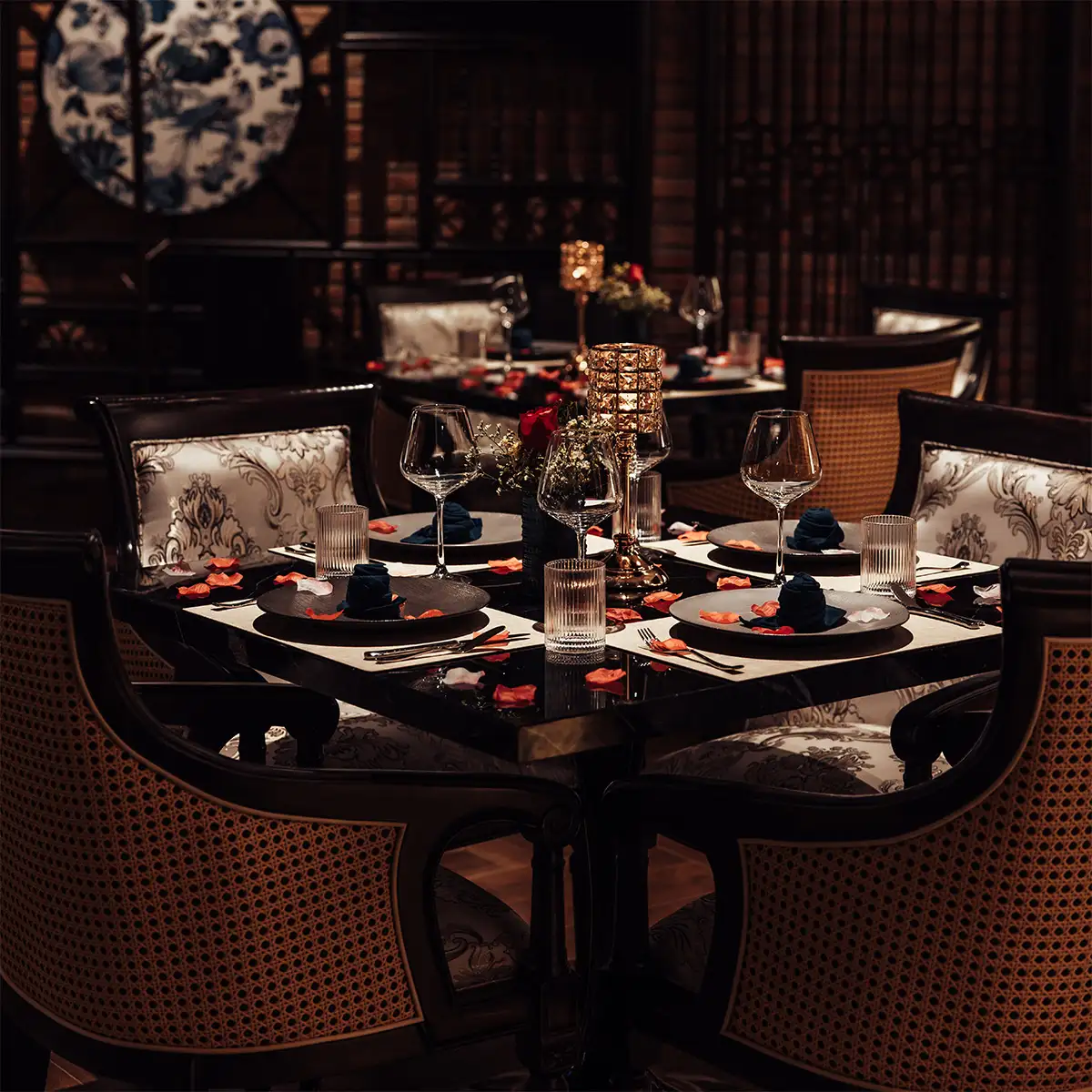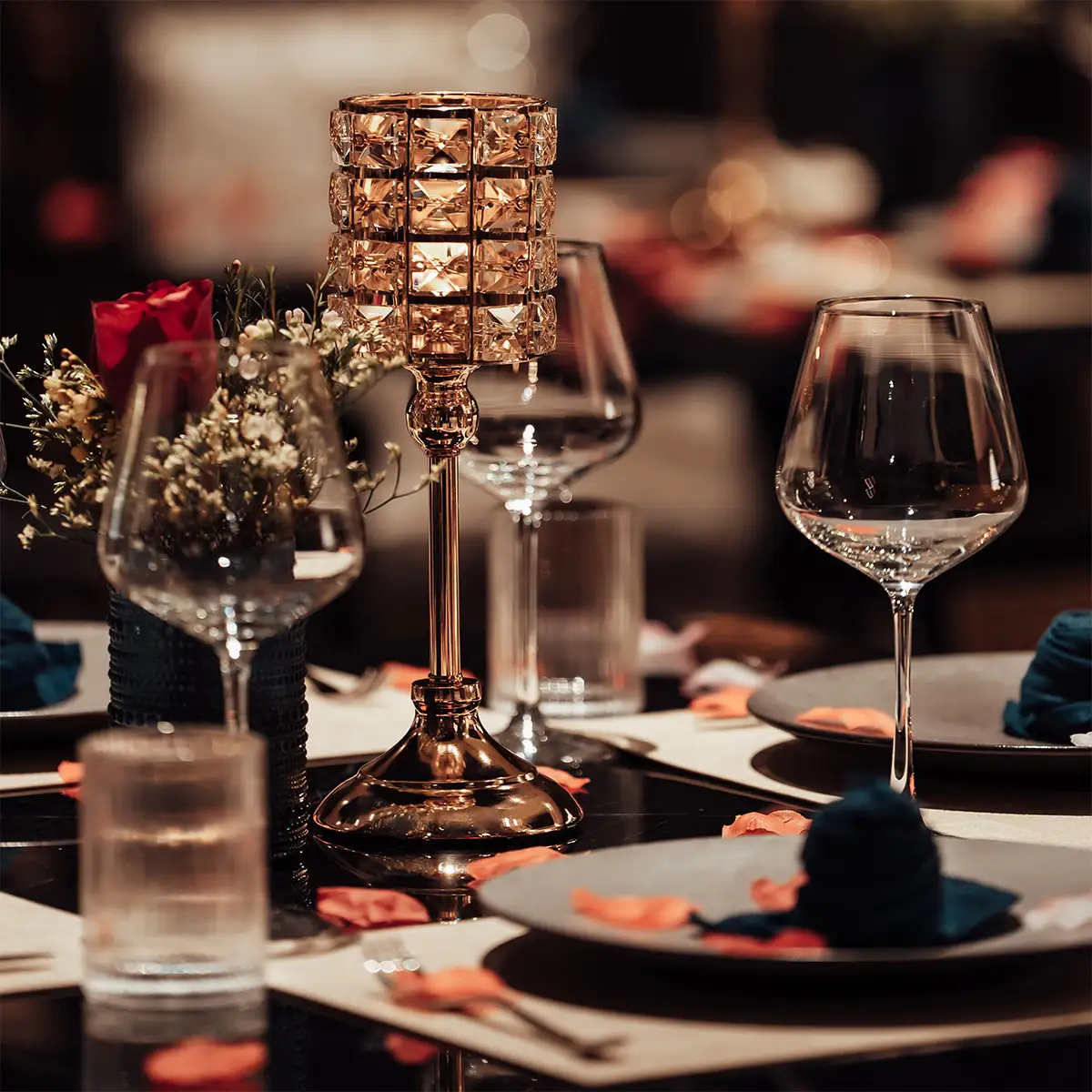The world of fine dining is an intricate dance of ambiance, service, and, most crucially, culinary artistry. At the heart of this experience stands the fine dining chef, a figure of immense skill, creativity, and dedication. Understanding what elevates a chef to this esteemed level is key to appreciating the exquisite journey a high-end restaurant offers. Moca Dining prides itself on a team of such talented individuals, each contributing to our mission of delivering unparalleled gastronomic experiences. This exploration delves into the multifaceted nature of a fine dining chef, from their foundational roles to the philosophies that guide their craft, and how this culminates in the Moca Dining experience.
1. Roles and responsibilities of a fine dining chef
The role of a fine dining chef extends far beyond the simple act of cooking. It is a complex position demanding a blend of artistry, precision, and leadership.
Menu planning: This is where the fine dining chef's vision begins to take shape.
Researching and seeking new ingredients: A relentless pursuit of the finest, freshest, and sometimes rarest ingredients is paramount. This often involves establishing relationships with artisanal producers and suppliers to source unique items that can inspire new culinary directions.
- Creating new, unique dishes: Innovation is a hallmark of fine dining. Chefs experiment with flavor combinations, textures, and cooking techniques to develop signature dishes that are both original and delightful. This creative process is often iterative, involving numerous trials and refinements.
- Balancing nutrition and flavor: While flavor is king, a sophisticated fine dining chef also considers the nutritional aspect of their creations, aiming for a harmonious balance that satisfies the palate and nourishes the body. Fine dining establishments often focus on high-quality, nutrient-rich ingredients prepared thoughtfully.
Kitchen management: A fine dining kitchen is a high-pressure environment requiring meticulous organization.
- Operating and assigning tasks to staff: The fine dining chef, often an Executive Chef or Chef de Cuisine, leads a brigade of cooks. Effective delegation, clear communication, and the ability to motivate a team are crucial for seamless operations during service.
- Ensuring food safety and hygiene: Impeccable standards of cleanliness and food safety are non-negotiable. Chefs are responsible for implementing and enforcing rigorous hygiene protocols to protect the health of their patrons.
- Managing costs and controlling quality: Beyond culinary artistry, a fine dining chef must possess business acumen. This includes managing food costs, minimizing waste, and ensuring that every dish leaving the kitchen meets the restaurant's exacting quality standards.
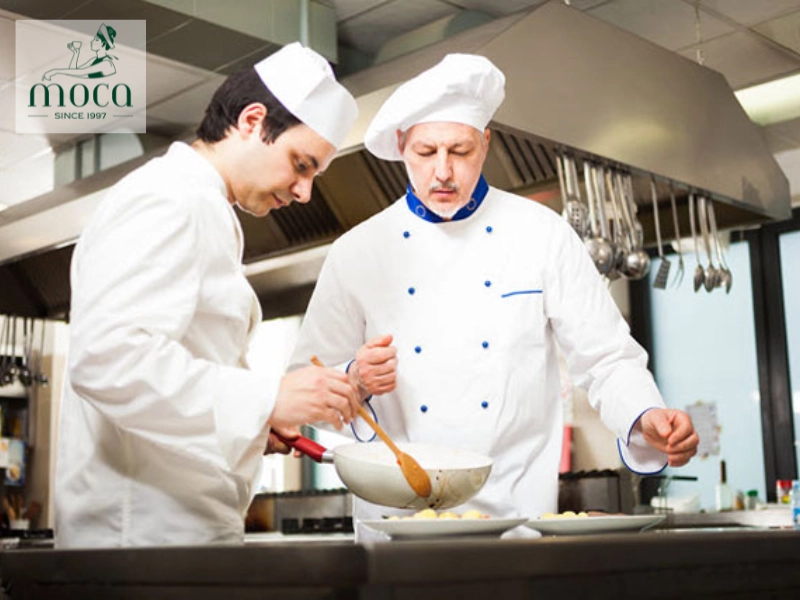
A fine dining chef is a visionary, leader, and craftsman—shaping each dish with creativity, discipline, and precision.
Dish preparation: The execution of dishes requires exceptional skill.
- Directly preparing complex dishes that require high skills: While overseeing the entire kitchen, the fine dining chef often takes the lead on the most intricate and technically demanding components of a dish.
- Ensuring dishes meet standards in terms of flavor, color, and presentation: Every element on the plate is deliberate. The chef ensures that dishes are not only delicious but also visually stunning, appealing to all the senses.
Staff training: Nurturing talent is a key responsibility.
- Guiding and training staff in cooking skills and culinary knowledge: The fine dining chef acts as a mentor, passing on techniques and knowledge to junior members of the team, fostering their growth and ensuring consistency in the kitchen.
- Inspiring and motivating staff: Maintaining morale and inspiring passion within the team is essential for a thriving kitchen environment.
Communicating with customers: Engagement with guests can elevate the dining experience.
- Listening to customer feedback: Valuable insights can be gained from guest comments, helping the chef to refine dishes and services.
- Explaining dishes, ingredients, and preparation methods: Increasingly, diners are interested in the story behind their food. A fine dining chef may interact with guests to share their culinary philosophy or details about specific dishes.
- Building good relationships with customers: Creating a connection with regular patrons can foster loyalty and enhance the restaurant's reputation.
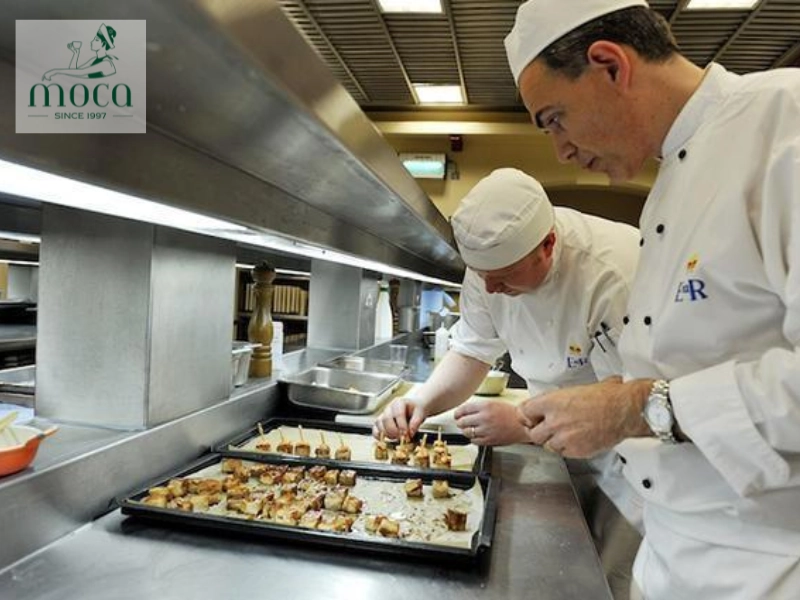
Fine dining chefs blend technical mastery with mentorship and guest engagement to create unforgettable experiences.
2. Skills needed to become a talented fine dining chef
Becoming a fine dining chef requires a formidable array of skills, honed through years of dedicated practice and experience.
Cooking skills: This is the bedrock of a chef's ability.
- Mastering basic and advanced cooking techniques: From classic French techniques to modern culinary innovations, a comprehensive repertoire is essential. This includes everything from precise knife skills to understanding complex cooking processes like sous-vide or molecular gastronomy.
- Proficiently using all types of kitchen tools and equipment: A fine dining chef must be adept with a wide range of professional kitchen equipment, from traditional tools to the latest technology.
- Having in-depth knowledge of ingredients and spices: Understanding the nuances of flavor, texture, and origin of ingredients, and how they interact, is critical for creating exceptional dishes.
Management skills: Leading a kitchen brigade requires strong leadership.
- Leading and managing staff: This involves not just assigning tasks but also inspiring teamwork, resolving conflicts, and fostering a positive work environment.
- Managing time and organizing work: The pace of a fine dining kitchen is relentless, especially during service. Efficient time management and organizational skills are vital.
- Solving problems and handling situations: Unexpected challenges are common in a kitchen. A talented fine dining chef must be able to think quickly and creatively to resolve issues as they arise.
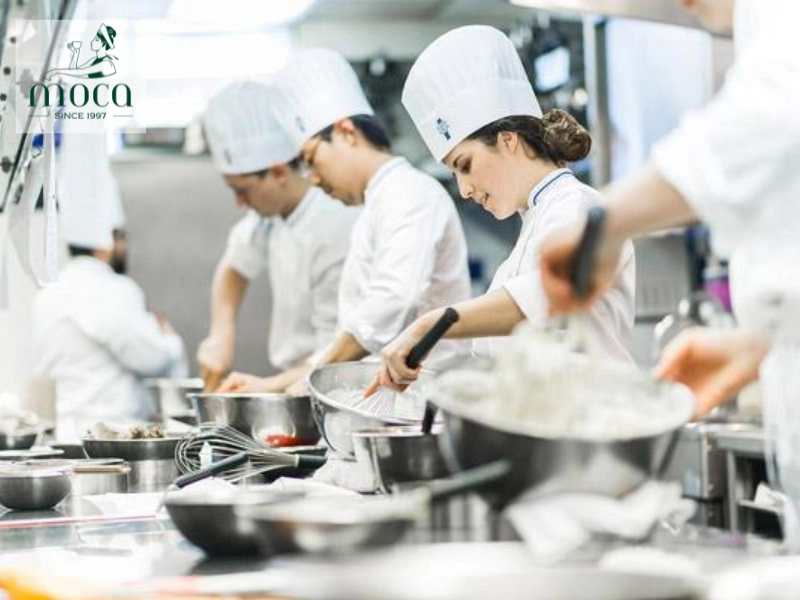
Becoming a fine dining chef demands mastery in both culinary artistry and kitchen command.
Learn more: Fine Dining Restaurant: Discover The Ultimate Culinary Experience
Creative skills: Fine dining is an art form.
- Having the ability to create new, unique dishes: Originality and innovation are highly valued. Chefs draw inspiration from diverse sources to develop their signature style.
- Harmoniously combining flavors and colors: A deep understanding of flavor profiles and visual aesthetics is necessary to create dishes that are both delicious and beautiful.
- Presenting dishes beautifully and impressively: Plating is a critical aspect of the fine dining experience, transforming food into a work of art.
Communication skills: Effective communication is key at all levels.
- Communicating effectively with staff, customers, and suppliers: Clear and respectful communication ensures smooth operations and positive relationships.
- Listening, understanding, and respecting the opinions of others: Collaboration and the ability to accept feedback are important for growth and refinement.
- Building good relationships with everyone: A professional network is invaluable.
Knowledge of cuisine: A broad and deep understanding of the culinary world is essential.
- Having extensive knowledge of the history and culture of cuisines from different countries: Understanding culinary traditions provides a foundation for innovation.
- Keeping up with the latest culinary trends around the world: The culinary landscape is constantly evolving, and chefs must stay informed about new techniques, ingredients, and dining concepts.
- Having knowledge of wine and other beverages: Understanding how to pair food with wine and other beverages enhances the overall dining experience.
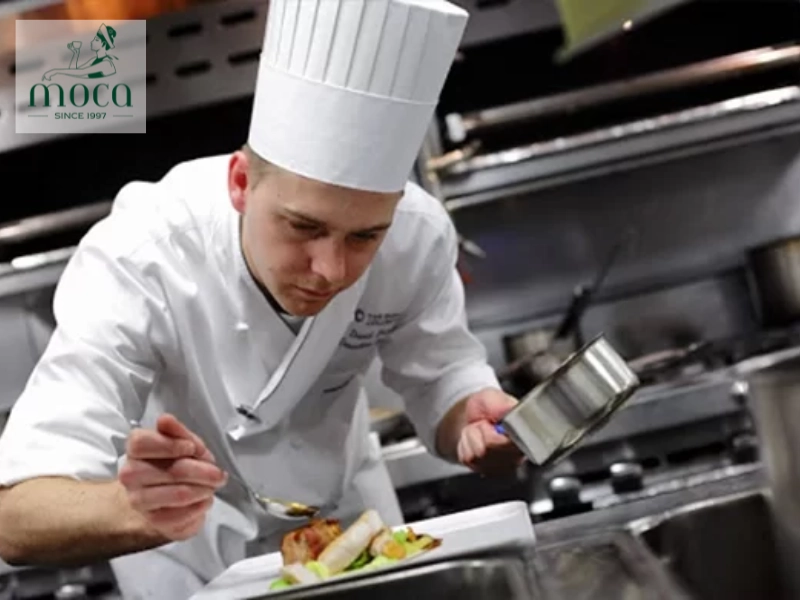
A fine dining chef is an artist, innovator, and communicator—shaping each plate with creativity, insight, and global perspective.
3. Career path of a fine dining chef
The journey to becoming a fine dining chef is typically long and arduous, demanding perseverance and a deep passion for the culinary arts.
Education: Formal training can provide a strong foundation.
- Attending professional cooking courses at vocational schools, colleges, and universities: Reputable culinary institutions offer structured programs covering foundational techniques and culinary theory.
- Learning from famous chefs (apprenticeships/stages): Working under esteemed chefs in an apprentice-style model is invaluable for gaining practical experience and mentorship. This hands-on learning is often considered crucial.
- Participating in culinary competitions to improve skills: Competitions provide a platform to test skills, gain recognition, and learn from peers under pressure. They can promote creativity and enhance cooking abilities.
Experience: There is no substitute for hands-on experience in a professional kitchen.
- Starting from the lowest position in the kitchen (e.g., kitchen assistant, dishwasher...): Many successful chefs begin their careers with basic tasks, gradually learning every aspect of kitchen operations. The commis chef role, for example, is often the first step after an apprenticeship.
- Gradually advancing to higher positions (e.g., head chef, sous chef...): Through hard work, skill development, and dedication, chefs can progress through the kitchen hierarchy, from Chef de Partie (station chef) to Sous Chef (second-in-command), and eventually to Head Chef or Executive Chef.
- Working at famous fine dining restaurants to learn from experience: Experience in acclaimed establishments exposes chefs to high standards, innovative techniques, and demanding environments.
Certifications: Credentials can enhance a chef's qualifications.
- Obtaining certifications in food safety and kitchen management: These certifications demonstrate a commitment to professionalism and safety standards.
- Participating in in-depth training courses in a specific area (e.g., baking, making sushi...): Specialization can further refine a chef's expertise and marketability.
Networking: Building connections within the culinary industry is important.
- Building good relationships with chefs, suppliers, and culinary experts: A strong professional network can lead to opportunities for learning, collaboration, and career advancement.
- Participating in culinary events and conferences to expand your network: Industry events offer chances to meet peers, learn about new trends, and connect with potential employers or mentors.
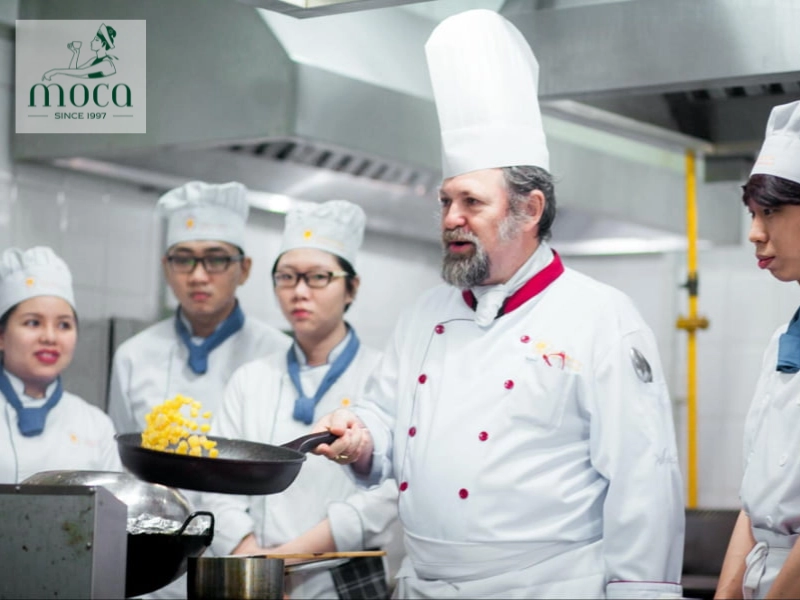
The path to becoming a fine dining chef is a lifelong journey of learning, dedication, and passion.
4. Style and culinary philosophy of fine dining chefs
Beyond technical skill, a truly exceptional fine dining chef possesses a distinct culinary style and a guiding philosophy that informs their creations. This is where food transcends sustenance and becomes an expression of art and passion.
- Using fresh, seasonal ingredients with clear origins: A cornerstone of modern fine dining is the emphasis on high-quality, seasonal produce, often sourced locally. This approach not only ensures optimal flavor but also supports sustainability and showcases the best of what each season has to offer. Chefs often build strong relationships with farmers and purveyors to access the freshest ingredients.
- Respecting the natural flavors of ingredients: While innovation is key, many fine dining chefs believe in allowing the inherent quality of the primary ingredients to shine. Techniques are often chosen to enhance, rather than mask, these natural flavors.
- Harmoniously combining tradition and modernity: Many chefs draw inspiration from classic culinary traditions while incorporating contemporary techniques and global influences. This balance can result in dishes that feel both familiar and excitingly new. The evolution of culinary arts often involves this dialogue between preserving heritage and embracing innovation.
- Creating new, unique dishes with a personal touch: A fine dining chef strives to develop a signature style that reflects their personality, experiences, and culinary vision. This personal stamp is what distinguishes their cuisine and creates a unique identity for the restaurant.
- Providing customers with memorable dining experiences: Ultimately, the goal of a fine dining chef is to create an experience that delights and lingers in the memory of the guest. This encompasses not just the food itself, but the entire sensory journey, from presentation to the ambiance it contributes to.
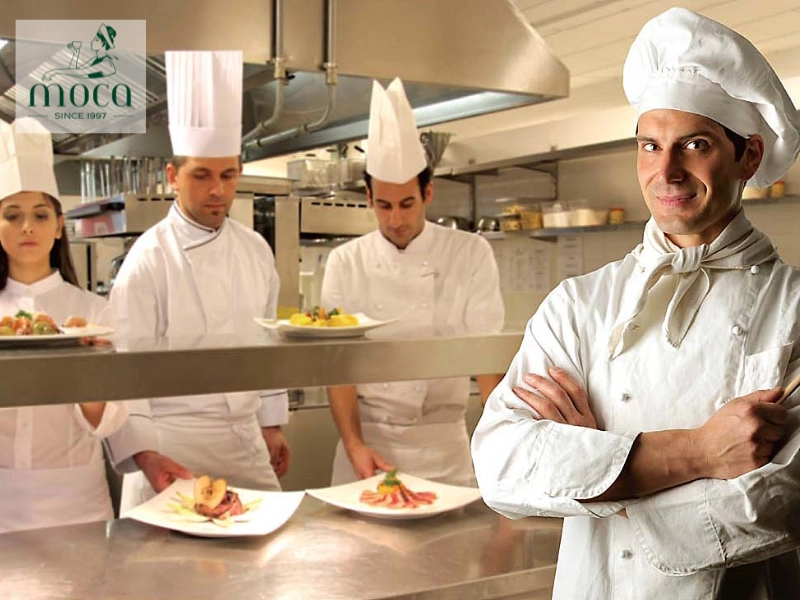
Fine dining chefs craft personal, seasonal, and unforgettable experiences through a philosophy that blends tradition with innovation.
Learn more: Fine Dining Menu: A Culinary Journey at Moca Dining
5. Chefs at Moca Dining: Talent, passion, and creativity
At Moca Dining, our chefs are the creative force behind every unforgettable dish—each bringing not only skill and experience, but also a deep passion for storytelling through cuisine. Their diverse backgrounds and shared commitment to excellence form the foundation of our refined, contemporary Vietnamese dining experience.
Executive Chef Hồng Sơn
Elevating the essence of homeland to the pinnacle of culinary artistry, Executive Chef Hồng Sơn leads Moca Dining’s kitchen with heart and vision. Hailing from a tranquil fishing village in Quảng Trị, he draws upon his roots to craft modern dishes that merge premium Western ingredients with the soul of Vietnamese cuisine. His signature style—a fusion of rustic charm and sophisticated technique—reflects years of dedication and a deep emotional connection to the ingredients he uses. At Moca Dining, every plate by Chef Hồng tells a story of love for his homeland, brought to life in the elegant ambiance of Nhà Thờ Street.
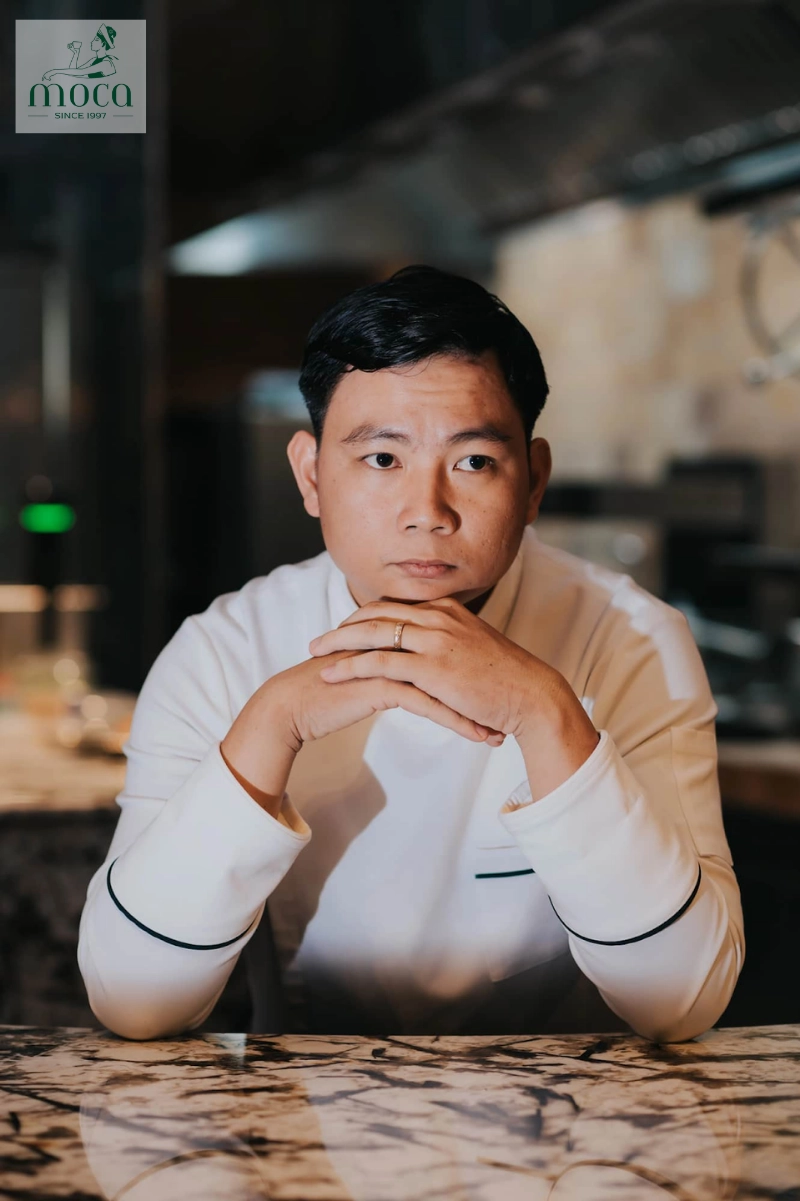
Executive Chef Hồng Sơn: Blending Vietnamese soul with global refinement, each dish is a heartfelt tribute to his Quảng Trị roots.
Pastry Chef Sơn Phạm
Born and raised in Hanoi, Pastry Chef Sơn Phạm brings nearly two decades of expertise in the pastry arts to Moca Dining. Having refined his craft in one of Hanoi’s most prestigious five-star hotels since 2006, he has worked alongside world-renowned pastry masters and has proudly served dignitaries, Presidents, and Heads of State. At Moca Dining, Chef Sơn introduces a signature “MOCA Afternoon Tea” from 14:00 to 18:00 daily, where each dessert is a delicate reflection of Vietnamese heritage and refined craftsmanship. His creations marry intricate flavors with elegant presentation, inviting guests on a journey that is as nostalgic as it is innovative.
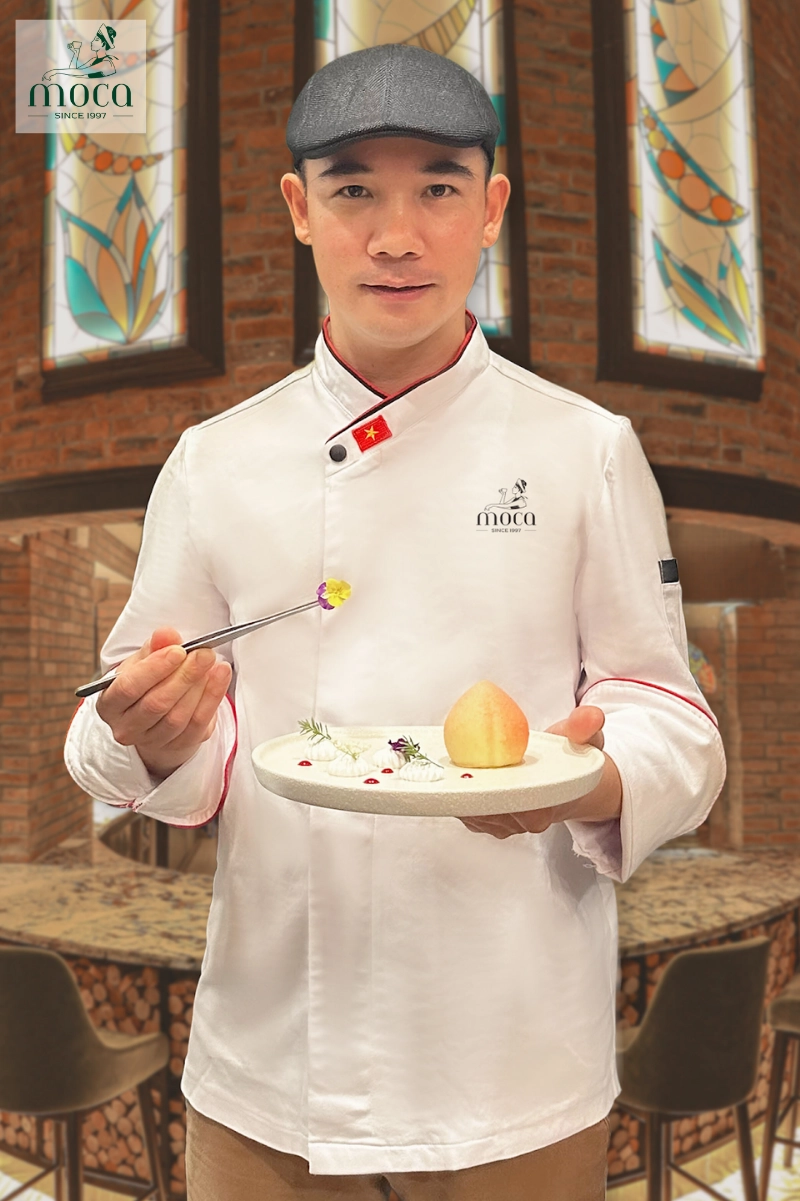
Pastry Chef Sơn Phạm: Honoring Vietnamese tradition through exquisite desserts crafted with precision, elegance, and nearly 20 years of pastry mastery.
Our chefs share a unified culinary philosophy to honor Vietnamese tradition while embracing global innovation. Using the finest seasonal ingredients, they create dishes that are contemporary yet timeless. The menu reflects a balance between respecting the natural integrity of each component and elevating flavor through meticulous technique. Sustainability and responsible sourcing are core values in our kitchen, guiding every creative decision.
Whether you're savoring Chef Hồng Sơn’s deeply personal culinary creations or indulging in the exquisite pastries of Chef Sơn Phạm, dining at Moca is not just a meal—it’s a celebration of Vietnamese identity elevated through global fine dining artistry.
At Moca Dining, our fine dining chefs are the heart of every unforgettable experience we offer. Their journey—rooted in passion, discipline, and creativity—demands not only technical mastery but also a deep commitment to excellence. These talented individuals are the architects behind each exquisite dish, blending innovation with tradition to craft moments that linger long after the meal. We invite you to discover their artistry firsthand and experience the depth, dedication, and elegance that define the Moca Dining experience.








